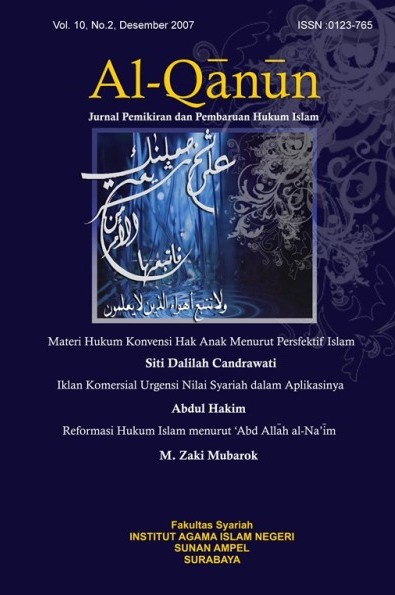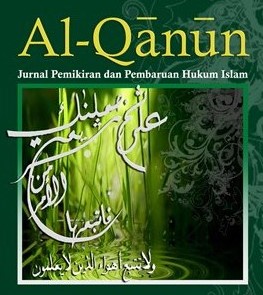Kedudukan Anak yang Lahir dari Nikah Tutup Malu Menurut Fikih dan Kompilasi Hukum Islam
DOI:
https://doi.org/10.15642/alqanun.2007.10.2%20Des.364-380Keywords:
Fikih, KHI, iqrar, istilhaq, ‘amm, al-maulud lah.Abstract
There is no difference between islamic jurisprudence and the Compilation of Islamic Law in indonesia in term of the validity of marrying a pregnant woman resulting from adultery. However, islamic jurisprudence allows such marriage without any condition, whereas the Compilation allows the marriage only by the man causing her pregnant (the biological father of the unborn baby). Further, if the man and the pregnant woman got married, islamic jurisprudence recognizes the father of the born baby is the husband of the baby’s mother with the condition that the baby was born six moths or more after the marriage. If not, the husband is not legally the father of the born baby. On the contrary, the Comilation recognizes the husband of the pregnant woman as the father of the born baby regardless the timing of labor. Actually, the Compilation is more realistic than the jurisprudence in determining the status of fatherhood for several reasons; the Compilation only allows the marriage between the pregnant woman with the man who has caused that pregnancy so that the baby’s father is truly his/her biological father. Secondly, determining the fatherhood in the Compilation can be achieved by confession (iqrar) or istilhaq which is the concept of the Hanafite School of Law, not that of Shafiite. Thirdly, determining the fatherhood in the Compilation is achieved by interpreting the general meaning of al-Qur’an (‘amm)of the word maulud lahwhich indicates absolute (qat’i) in Hanafite school. In addition, it can also be inferred from a hadith on Jurayj.Downloads
Download data is not yet available.
Downloads
Published
2016-07-21
How to Cite
Makinuddin, Makinuddin. 2016. “Kedudukan Anak Yang Lahir Dari Nikah Tutup Malu Menurut Fikih Dan Kompilasi Hukum Islam”. Al-Qanun: Jurnal Pemikiran Dan Pembaharuan Hukum Islam 10 (2 Des):364-80. https://doi.org/10.15642/alqanun.2007.10.2 Des.364-380.
Issue
Section
Articles






